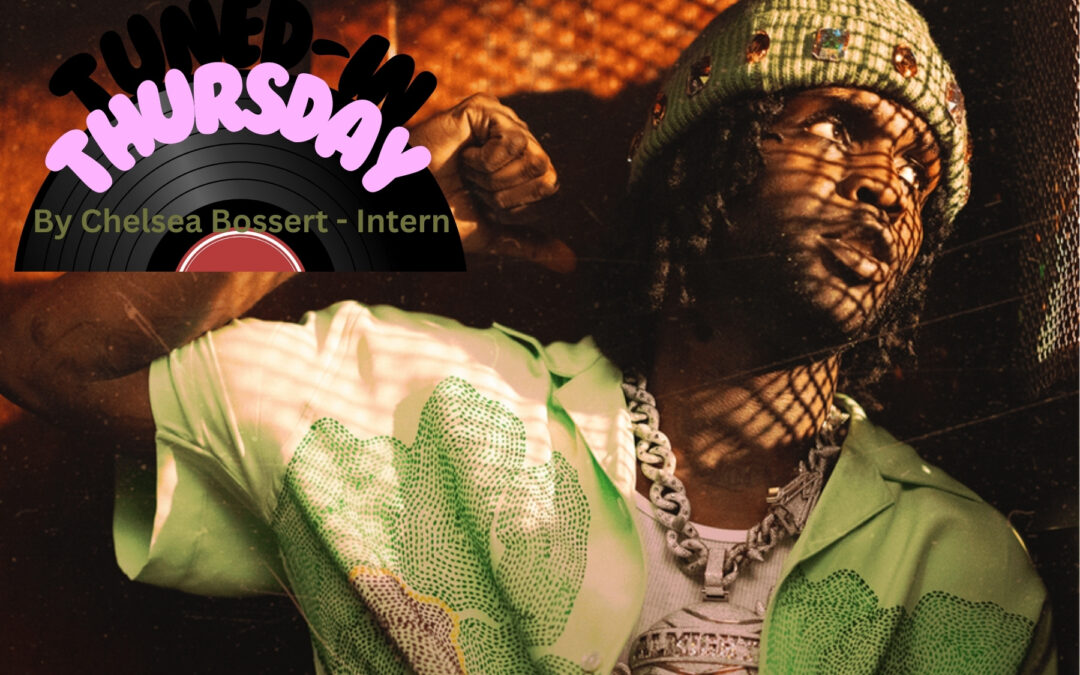
Tuned-In Thursday: Chief Keef and Childish Gambino
Expectations can be a damning thing. If you have predisposed ideas about a person, group, idea or event, then it completely warps your idea of what that thing is and will be. This rings true for a myriad of different topics but how it primarily affects me and my music enjoyment is with hip-hop.
Every time I think that a certain artist is done with producing and releasing good music, and every time I think that there is an artist that can do no wrong, something changes – those expectations get undermined.
This is what happened last year, about six months ago, with Westside Gunn and Ken Carson, two artists who have primarily released great and poor music respectively. Ken Carson ended up releasing the better album that week by a large margin and Westside Gunn’s ended up falling short.
This week, we have two hip-hop/RnB and neo-soul legends, Chief Keef and Donald Glover (a.k.a. Childish Gambino.) Both artists have carved their own paths in music cannon in the early to mid-2010s.
Keith Farrelle Cozart (a.k.a. Chief Keef,) is a Chicago-drill artist that rose to prominence in the early-2010s with his abrasive and bombastic drill tracks such as “I Don’t Like” and “Love Sosa.” Lately though, Chief Keef’s music has been on the decline, with each release straying farther and farther from what made his music fresh and great.
However, Chief Keef’s latest studio outing, “Almighty So 2,” is a mighty beacon of hope to those who have written Chief Keef off.
To start off with genre, this was not a trend-hopping rage rap album like people have predicted, instead this is a full blown, throwback, true Chicago-drill rap album. Songs like “Jesus,” “Runner” and “1,2,3” all have triumphant production that include classic drill staples: horns, a pulsing bass line, clicking hi hats and lots of car engine sound effects.
Chief Keef is arguably the most comfortable he has ever sounded, no awkward flows, no whack-sounding bars – all precision and all skill. Boastful yet introspective lyrics are what I usually look for on the lyrical side of a modern rap record and Chief Keef effortlessly delivers.
Finally, the record is the perfect length, 16 tracks and just over an hour – the album never overstays its welcome. There are a few tracks and one skit near the beginning of the record that halt the album’s momentum for a bit, however this is short-lived as track five, “Jesus” really picks the album’s speed back up.
For Chief Keef, this album is a great moment, however, on the other side of the spectrum is Childish Gambino.
Gambino is one who usually releases great music: “Because The Internet,” “’Awaken My Love’” and the single “This Is America” all have set him up for success.
Gambino’s latest effort, “Atavista” (formerly the project known as “3.15.20”) is a revamp of his 2020 record, an album that – at the time – sounded entirely unfinished. Now, that record is complete, with one new track, re-mixed and re-mastered original tracks, and a thematic through line to tie it all together, how does “Atavista” hold up against all of Gambino’s other records?
The answer is not well.
The truth is, Gambino does not expand upon any established ideas, instead he recycles them until there is no more meaning to those original great ideas.
The meandering alternative-RnB of “Because The Internet” is present on tracks like “To Be Hunted” and “Sweet Thang,” as well as the progressive neo-soul of “’Awaken My Love’” on “Time” and even the jitter, erratic hip-hop of Gambino’s critically panned (but cult-classic nonetheless), “Camp” on “Final Church.”
All of these recycled and not-expanded upon ideas just feel tired at this point. It’s depressing that Gambino spends four years re-mixing and re-mastering all of these tracks just to end up sounding like copies of your old work.
It’s not a good look at all.
What we can learn from this journey into expectation is to just not have expectations. Go into an album blind, do not look anything up about it, do not listen to any singles or teasers – just listen!
If we all lose our expectations of what something can be, then we can really have a discussion of the merits of art and the like.

